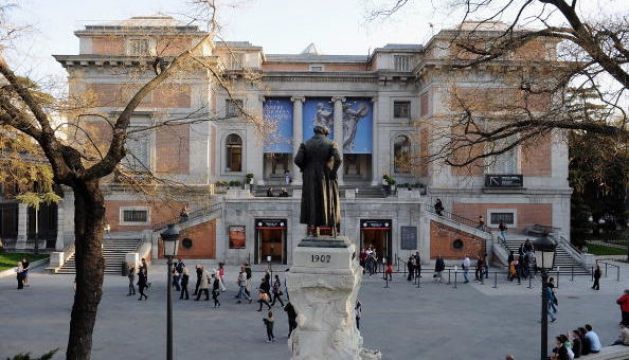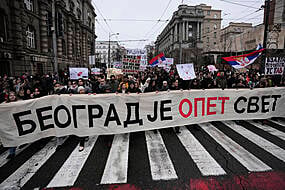Survivors of a mass food poisoning four decades ago occupied Madrid's El Prado art gallery on Tuesday, threatening to take their own lives if their demands for aid and attention were unmet.
A photo showed six people – one in a wheelchair – holding a banner in front of “Las Meninas”, a painting by Spanish painter Diego Velazquez. Others gathered outside.
“No more humiliation and abandonment,” said a statement posted mid-morning on the Twitter account of an association for victims of the adulterated rapeseed oil that harmed thousands of people across Spain in 1981.
🛑 ÚLTIMA HORA | Un grupo de víctimas del aceite de colza se encierran en el Museo Del Prado y amenazan “con retransmitir en directo su descanso eterno” si el presidente del Gobierno no atiende sus demandas
“Pasadas 6 horas empezarán a ingerir pastillas” pic.twitter.com/zhWhDVRsBf— Radio Madrid (@RadioMadrid) October 19, 2021
“Six hours after the start of our presence here, we will start ingesting pills,” warned the association “We Are Still Alive”, without giving a precise time.
The group's demands included a meeting with prime minister Pedro Sanchez and mediators by the end of October, and money to cover medical expenses for surviving victims of one of the world's biggest food poisoning scandals.
The poisoning killed 5,000 people and affected another 20,000, mostly with incurable conditions, it said.
'We are sick'
There was no immediate comment from the Spanish government or the Prado. The protesters said they chose the museum because culture had helped victims to cope.
“We are sick. Physically, we are 20 years older than our IDs say,” one woman said outside.
The substance was originally for industrial use but was adulterated and illegally sold as olive oil, mostly in street markets, starting in Madrid then spreading to other areas.
#BuenosDias,comunicado Plataforma SeguimosViviendo,#PradoVictimasColzaDescansoEterno
Victimas d l colza encerradas en el Prado,amenazamos con ejecutar en directo el descanso eterno.@EFEnoticias @BBCWorld @Reuters @agencia_dpa @ActualidadRT @lemondefr @EU_Commission @europapress pic.twitter.com/0Kb56sIysK— Seguimos Viviendo (@Sindromecolza) October 19, 2021
Symptoms ranged from lung failure and limb deformation to the destruction of the body's immune system.
Many survivors were crippled for life.
About 100,000 individuals were exposed and clinical disease occurred in 20,000 people, 10,000 of whom were hospitalised, according to Science Direct website.
More than 300 victims died, it said.
If you have been affected by any of the issues raised in this article, you can freephone the Samaritans 24 hours a day for confidential support at 116 123 or email jo@samaritans.org.
Alternatively, the contact information for a range of mental health supports is available at mentalhealthireland.ie/get-support.







